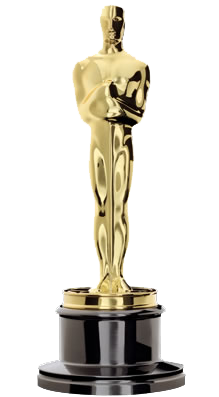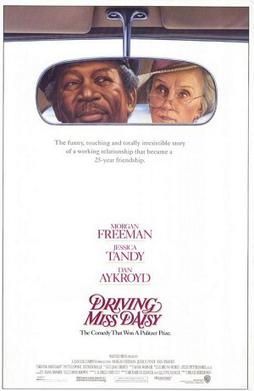Related Research Articles

The Academy Awards, mainly known as the Oscars, are awards for artistic and technical merit for the film industry. They are presented annually by the Academy of Motion Picture Arts and Sciences (AMPAS), in recognition of excellence in cinematic achievements as assessed by the Academy's voting membership. The Academy Awards are regarded by many as the most prestigious, significant awards in the entertainment industry in the United States and worldwide. The Oscar statuette depicts a knight rendered in the Art Deco style.

Mack Sennett was a Canadian actor, director, comedian, and studio head who was known as the "King of Comedy" during his career.
The Academy Award for Best Picture is one of the Academy Awards presented annually by the Academy of Motion Picture Arts and Sciences (AMPAS) since the awards debuted in 1929. This award goes to the producers of the film and is the only category in which every member of the Academy is eligible to submit a nomination and vote on the final ballot. The Best Picture category is traditionally the final award of the night and is widely considered as the most prestigious honor of the ceremony.
The Academy Award for Best Animated Feature is given each year for animated films. An animated feature is defined by the academy as a film with a running time of more than 40 minutes in which characters' performances are created using a frame-by-frame technique, a significant number of the major characters are animated, and animation figures in no less than 75 percent of the running time. The Academy Award for Best Animated Feature was first awarded in 2002 for films released in 2001.
The Academy Award for Best Animated Short Film is an award given by the Academy of Motion Picture Arts and Sciences (AMPAS) as part of the annual Academy Awards, or Oscars, since the 5th Academy Awards, covering the year 1931–32, to the present.
The Academy Award for Best Live Action Short Film is an award presented at the annual Academy Awards ceremony. The award has existed, under numerous names, since 1957.

Mike Nichols was a German-born American film and theater director, producer, actor, and comedian. He worked across a range of genres and had an aptitude for getting the best out of actors regardless of their experience. He is one of 18 people to have won all four of the major American entertainment awards: Emmy, Grammy, Oscar, and Tony (EGOT). His other honors included three BAFTA Awards, the Lincoln Center Gala Tribute in 1999, the National Medal of Arts in 2001, the Kennedy Center Honors in 2003 and the AFI Life Achievement Award in 2010. His films received a total of 42 Academy Award nominations, and 7 wins.

The Academy Award for Best Original Score is an award presented annually by the Academy of Motion Picture Arts and Sciences (AMPAS) to the best substantial body of music in the form of dramatic underscoring written specifically for the film by the submitting composer. Some pre-existing music is allowed, though, but a contending film must include a minimum of original music. This minimum since 2021 is established as 35% of the music, which is raised to 80% for sequels and franchise films. Fifteen scores are shortlisted before nominations are announced.

Driving Miss Daisy is a 1989 American comedy-drama film directed by Bruce Beresford and written by Alfred Uhry, based on his 1987 play of the same name. The film stars Jessica Tandy, Morgan Freeman, and Dan Aykroyd. Freeman reprised his role from the original Off-Broadway production.
The 75th Academy Awards ceremony, presented by the Academy of Motion Picture Arts and Sciences (AMPAS) took place on March 23, 2003, at the Kodak Theatre in Hollywood, Los Angeles. During the ceremony, AMPAS presented Academy Awards in 24 categories honoring films released in 2002. The ceremony, televised in the United States by ABC, was produced by Gilbert Cates and was directed by Louis J. Horvitz. Actor Steve Martin hosted for the second time, having previously presided over the 73rd ceremony held in 2001. Three weeks earlier in a ceremony at Regent Beverly Wilshire Hotel in Beverly Hills, California held on March 1, the Academy Awards for Technical Achievement were presented by host Kate Hudson.

The 67th Academy Awards ceremony, organized by the Academy of Motion Picture Arts and Sciences (AMPAS) took place on March 27, 1995, at the Shrine Auditorium in Los Angeles beginning at 6:00 p.m. PST / 9:00 p.m. EST. During the ceremony, AMPAS presented Academy Awards in 23 categories honoring the films released in 1994. The ceremony, televised in the United States by ABC, was produced by Gilbert Cates and directed by Jeff Margolis. Comedian David Letterman hosted the show for the first time. Three weeks earlier in a ceremony held at the Regent Beverly Wilshire Hotel in Beverly Hills, California on March 4, the Academy Awards for Technical Achievement were presented by host Jamie Lee Curtis.

The 78th Academy Awards presented by the Academy of Motion Picture Arts and Sciences (AMPAS), took place on March 5, 2006, at the Kodak Theatre in Hollywood, Los Angeles beginning at 5:00 p.m. PST / 8:00 p.m. EST. The ceremony was scheduled one week later than usual to avoid a clash with the 2006 Winter Olympics. During the ceremony, AMPAS presented Academy Awards in 24 categories honoring films released in 2005. The ceremony, televised in the United States by ABC, was produced by Gil Cates and directed by Louis J. Horvitz. Actor Jon Stewart hosted the show for the first time. Two weeks earlier in a ceremony at The Beverly Hilton in Beverly Hills, California held on February 18, the Academy Awards for Technical Achievement were presented by host Rachel McAdams.

The 5th Academy Awards were held by the Academy of Motion Picture Arts and Sciences on November 18, 1932, at the Ambassador Hotel in Los Angeles, California, hosted by Conrad Nagel. Films screened in Los Angeles between August 1, 1931, and July 31, 1932, were eligible to receive awards. Walt Disney created a short animated film for the banquet, Parade of the Award Nominees.
The Loud Mouth is a 1932 American pre-Code short comedy film directed by Del Lord. It was nominated for an Academy Award in 1932 for Best Short Subject (Comedy).
Stout Hearts and Willing Hands is a 1931 American Pre-Code short comedy film directed by Bryan Foy and starring Frank Fay and Lew Cody. At the 5th Academy Awards, held in 1932, it was nominated for an Academy Award for Best Short Subject (Comedy), but was disqualified. No reason was given for the disqualification.
Lou Brock was an American film producer, screenwriter and director. He produced more than 70 films between 1930 and 1953. He was nominated for two awards at the 6th Academy Awards in 1934 in the category Best Short Subject. His film So This Is Harris won the award. He was born in Kalamazoo, Michigan and died in Los Angeles.
The Academy Award for Best Original Song is one of the awards given annually to people working in the motion picture industry by the Academy of Motion Picture Arts and Sciences (AMPAS). It is presented to the songwriters who have composed the best original song written specifically for a film. The performers of a song are not credited with the Academy Award unless they contributed either to music, lyrics, or both in their own right. The songs that are nominated for this award are typically performed during the ceremony and before this award is presented.
Roger Heman was an American sound engineer. He won an Academy Award for Best Sound and was nominated for another one in the same category. His father was also a sound engineer and also won an Academy Award, for Best Effects, Special Effects for Crash Dive.

Do I Have to Take Care of Everything? is a 2012 Finnish short film by Selma Vilhunen. It was nominated for the Best Live Action Short Film at the 86th Academy Awards. The film is a comedy about a busy morning in a family and a mother who is trying to take care of everything by herself.
References
- ↑ "The 5th Academy Awards (1932) Nominees and Winners". oscars.org. Retrieved June 24, 2013.
- ↑ "Academy Disqualifies Oscar-Nominated Song 'Alone Yet Not Alone'". Hollywood Reporter. January 29, 2014. Retrieved June 15, 2014.